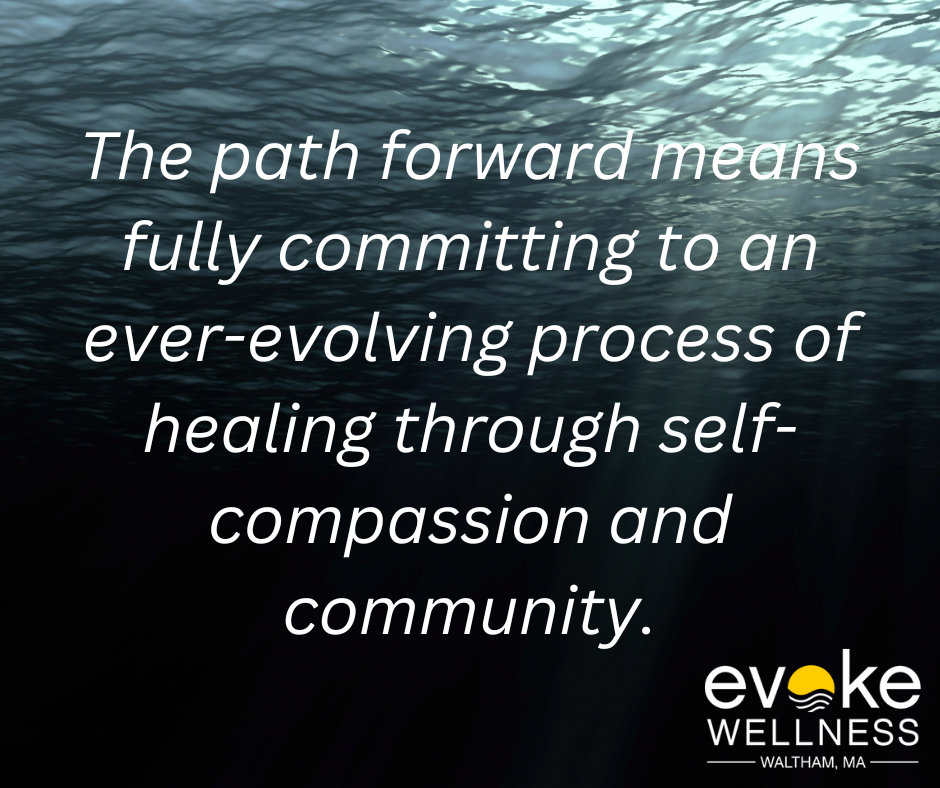As you journey through recovery, you may encounter unexpected waves of grief and loss. These emotions can be overwhelming, threatening to derail your progress. But you’re not alone in this struggle. Understanding how to navigate grief and loss is crucial for maintaining your mental health and continuing your path to healing. In this article, we’ll explore therapeutic approaches that can help you process these complex feelings while staying committed to your recovery. From cognitive-behavioral techniques to mindfulness practices, you’ll discover tools to cope with loss, honor your emotions, and move forward with resilience. Let’s dive into strategies that can transform your grief into growth and strengthen your recovery journey.
Call us at (833) 287-7223 today or reach out online.
The Meaning of Recovery in Mental Health
Recovery means different things for different people. For some, it may mean complete remission of symptoms. For others, it could represent living a fulfilling life while managing an ongoing condition.
The Four Types
- Clinical recovery: When symptoms remit to the point where the condition is no longer diagnosable.
- Functional recovery: Regaining the ability to engage in daily activities and life roles.
- Physical recovery: Restoring overall physical health and well-being.
- Existential recovery: Finding meaning, purpose, and quality of life despite ongoing challenges.
True recovery often encompasses elements of all four domains. The meaning is highly personal – it’s about achieving your own definition of a life worth living.
The Role of Grief and Loss in Recovery
Acknowledging the Impact
Grief and loss are profound experiences that can significantly impact the recovery journey. Recognizing their influence is crucial for holistic healing.
Addressing in Treatment
Integrating grief counseling into mental health treatment plans is essential. This allows individuals to process unresolved emotions, facilitating recovery progress.
Therapeutic Modalities
Various therapeutic approaches, such as cognitive-behavioral therapy, mindfulness practices, and support groups, can aid in navigating grief and loss during recovery.
Therapeutic Approaches to Healing Grief and Loss
Cognitive-Behavioral Therapy (CBT)
Cognitive-Behavior Therapy (CBT) helps reframe negative thought patterns related to grief. It teaches coping strategies to manage intense emotions.
- Challenge irrational beliefs about the loss
- Develop problem-solving skills
- Practice relaxation techniques
Mindfulness-Based Interventions
Mindfulness cultivates present moment awareness. This can aid emotional processing of grief.
- Mindfulness meditation reduces rumination
- Body scans relieve physical tension
- Loving-kindness practices encourage self-compassion
Expressive Therapies
Creative outlets provide a healthy avenue for self-expression during bereavement. Art, music, dance, and writing therapies:
- Externalize internal experiences
- Process complex feelings nonverbally
- Memorialize the deceased symbolically
Integrating these evidence-based approaches into mental health treatment can facilitate healing after profound loss. With support, the pain of grief can gradually become more manageable.
Practical Strategies for Recovery
Find a Support System
Surround yourself with people who understand what you’re going through. Lean on trusted friends, join a support group, or seek counseling. Having others to talk to can provide comfort and accountability.
Practice Self-Care
Be kind to yourself during this difficult transition. Make time for activities that promote relaxation and well-being, whether it’s exercise, meditation, journaling, or a simple indulgence. Prioritizing self-care can help manage grief.
Develop Coping Skills
Work on building healthy ways to process emotions. Techniques like deep breathing, mindfulness exercises, or creative outlets can provide an emotional release. Identify strategies that resonate with you.
Overcoming Obstacles in Recovery
Getting through setbacks takes resilience. Recovery has ups and downs – expect roadblocks.
Manage Expectations
- Recovery is rarely linear; have realistic expectations
- Prepare for challenges and setbacks along the way
Build Your Support System
- Surround yourself with positive people who encourage your progress
- Consider joining a support group for solidarity and advice
Practice Self-Compassion
- Don’t beat yourself up over mistakes or slip-ups
- Celebrate small wins to stay motivated
Recovery: The Path Forward
Embracing recovery as an ongoing process requires celebrating milestones while understanding the journey continues. Here are some perspectives to consider:
Celebrate Progress
- Recognize achievements, no matter how small
- Mark sobriety milestones in a meaningful way
- Allow joy to fuel further healing
Lifelong Commitment
- View recovery not as an endpoint but a lifelong practice
- Be prepared for periodic setbacks and renew commitment
- Prioritize self-care through activities, routines that support wellbeing
Support System
- Build a network of supportive relationships
- Consider therapy to process grief, develop coping skills
- Join peer support groups for empathy and accountability
Conclusion
As you navigate grief and loss in recovery, remember that healing is possible. By embracing therapeutic approaches tailored to your needs, you can process your emotions and find renewed purpose. Consider these key takeaways:
- Grief work is an essential part of recovery
- Therapy provides a safe space to explore complex feelings
- Support groups offer connection and shared experiences
- Mindfulness practices promote present-moment awareness
Mental health treatment, including individual counseling and medication management when appropriate, can provide additional support. Be patient with yourself as you move through this challenging journey. With time and the right tools, you can honor your losses while building a meaningful life in recovery. You have the strength within you to heal and grow.
Begin Your Journey with Evoke Wellness at Waltham
If you or a loved one is considering outpatient treatment, Evoke Wellness at Waltham invites you to contact us. Our compassionate team is ready to answer your questions, discuss your needs, and help you take the first steps toward recovery. At Evoke Wellness, you will find more than just a treatment program – you’ll discover a community dedicated to your wellness and success. Together, let’s embrace the journey to recovery and the promise of a new beginning. Call us at (833) 287-7223 today or reach out online.



